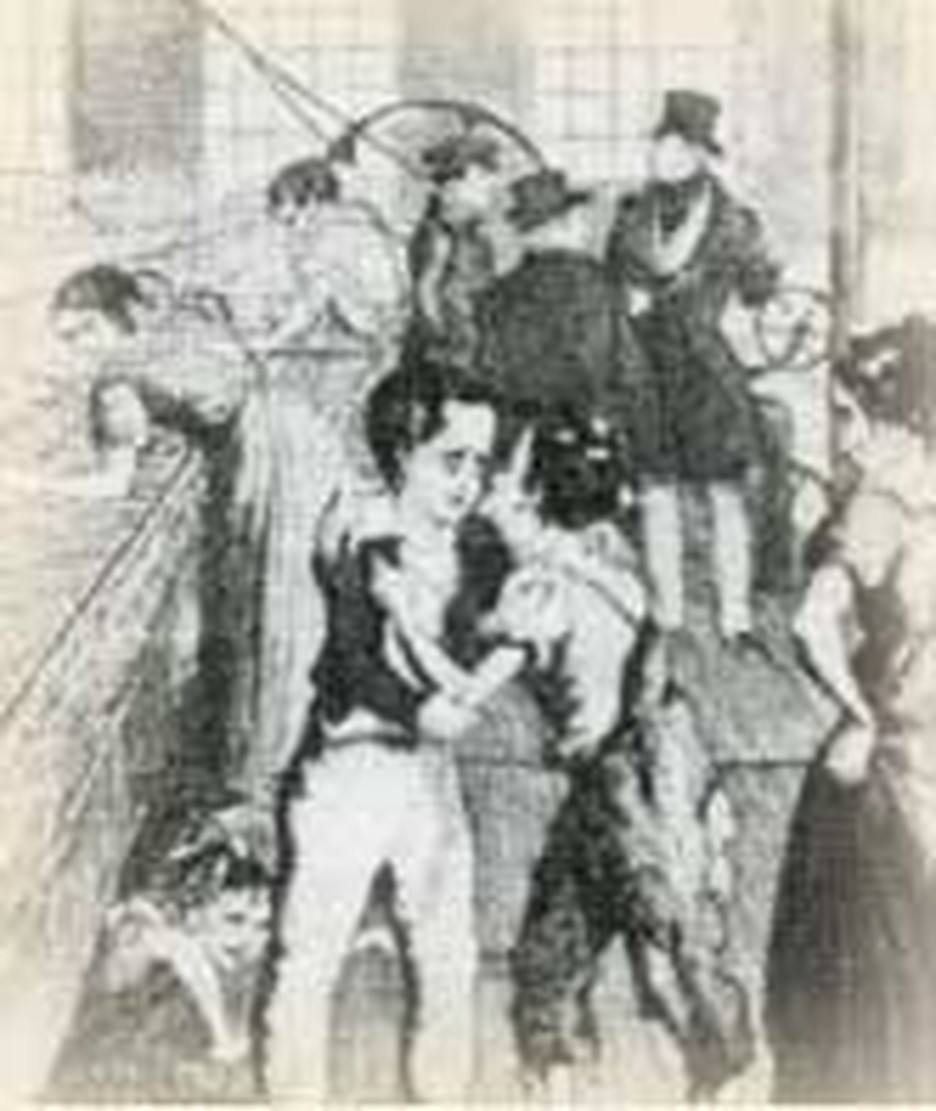
During the last half of the eighteenth century, many communities in England dreaded Sunday. It was the only day the children working in the factories had off, and not surprisingly they let out all their rowdiness and mischief on that day. From 1702-1801, the population of England had doubled; more and more people were moving to the cities and towns to find work in the factories. The traditional social and religious ties of village life were severed. Very often there was no place for the immigrants from the countryside in the churches of the industrialized towns, and a generation or two of children grew up without any religious or moral guidelines.
Children Adrift
Robert Raikes, owner and printer of the Gloucester Journal, pondered
the fate of the young ruffians disturbing the peace on Sunday. He had
visited the prisons of Gloucester and saw how easy it was for the children
to slip into crime. Raikes knew the parents of the poor children were
"totally abandoned themselves, having no idea of instilling into
the minds of their children principles to which they themselves were entire
strangers." Some other means of teaching these youngsters must be
found, or many more would end up in prisons.
Since the children of the poor worked in the factories all week, they could not go to schools and hence had no education. Raikes decided to establish schools for these children to attend on Sundays. He hired four women in the neighborhood to teach the children to read. With the help of Reverend Thomas Stock, Raikes was soon able to enroll one hundred children, from six years old to twelve or fourteen, in these Sunday Schools.
Just Wash That Face
Some of the poor children were at first reluctant to come to the schools
because their clothes were so ragged, but Raikes assured them all they
needed was a clean face and combed hair. The children had their reading
lessons from ten to two, with a one hour break for lunch. They then were
taken to church, after which they were instructed in the catechism until
five- thirty. Small rewards were given to those who had mastered their
lesson or whose behavior had shown a noted improvement.
Changed Children
The character of many of the youngsters was transformed by their Sunday
school attendance. Their swearing, rudeness, and unruliness on Sunday
were replaced by a sense of duty and a desire to improve their minds.
One of the manufacturers of hemp and flax who employed many of the children,
a Mr. Church, commented on the transformation of the children: the change
could not have been more extraordinary, in my opinion, had they been transformed
from the shape of wolves and tigers to that of men.
More measurably, the crime rate dropped sharply in Raikes' city and county after the establishment of the schools. At the Easter Quarter Sessions of 1786, the magistrates passed an unanimous vote of thanks for the benefits of Sunday Schools to the morals of the young. In 1792, not one criminal defendant appeared before the judge; ten years earlier there would have been anywhere between ten and one hundred cases.
Seeds for the Harvest
Raikes saw the Sunday schools as simply a response to Jesus' instruction
to "feed my lambs." The poor children must be sought out and
helped. "No one can form an idea of what benefits he is capable to
the community by . . . visiting the dwellings of the poor." Thus,
for Raikes, serving the Lord by ministering to poor children, would have
important effects on society at large: If the glory of God be promoted
in any, even the smallest degree, society must reap some benefit. If the
good seed be sown in the mind at an early period of human life though
it shows itself not again for many years, it may please God, at some future
period, to cause it to spring up, and to bring forth a plentiful harvest.
Noblest Specimens
There had been Charity Schools and Sunday Schools before Robert Raikes,
but it was Raikes who publicized the schools and gathered public support
for them. By 1785, a Sunday School Society had been formed in London to
distribute Bibles and spelling books. Being a publisher by trade, Raikes
was able to publish, import, and distribute the primers, readers, spelling
books, catechisms, and copies of Scriptures so important to the movement.
In 1788 John Wesley wrote to a friend, "I verily think these Sunday Schools are one of the noblest specimens of charity which have been set on foot in England since William the Conqueror."
What about Today?
Raikes once commented that: The world marches forth on the feet of little
children. Public schools have now taken over much of the role that Sunday
Schools pioneered. But who can doubt that there is today a desperately
important educational task for the church with children, whether through
the Sunday School, or some other format. To change the world reach the
children! Is your congregation and Sunday School reaching the poor and
needy children of your area?
Glory to God |



